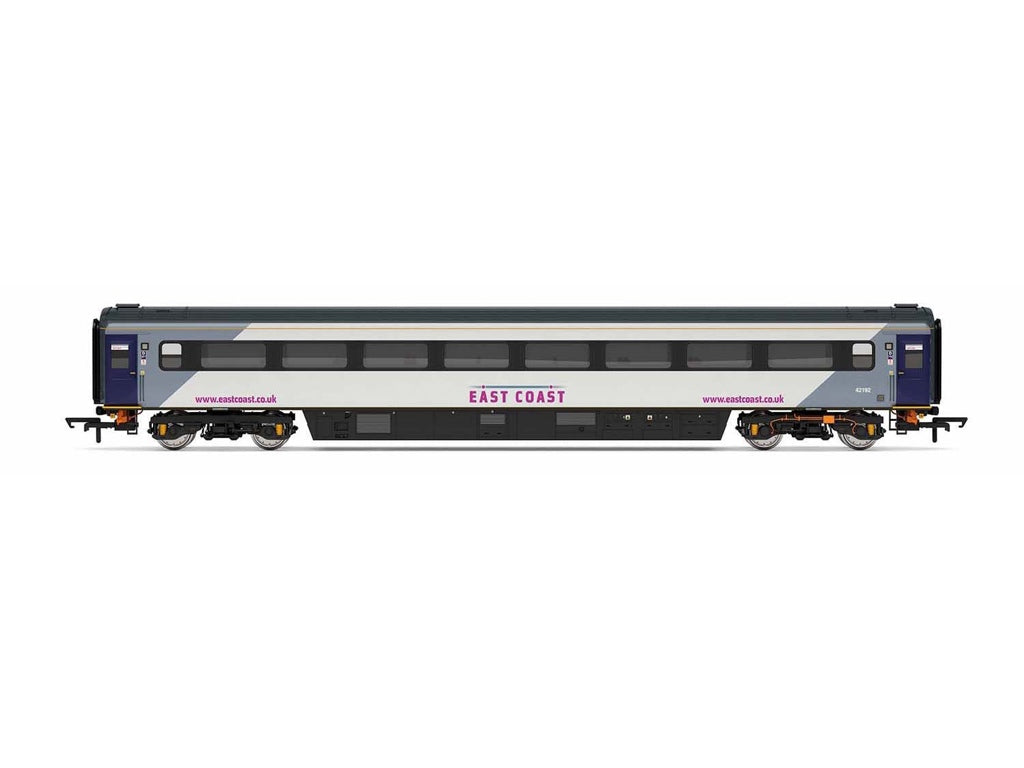You need to choose options for product.
-
 files/r40247a_1.jpg
files/r40247a_1.jpg
In-order to allow running at 125 mph on Britain's railways, new rolling stock was needed by British Railways. Significant improvements over the Mk2 included new secondary air suspension between the bogies and the coach body as well as aerodynamic skirting on the underframe. Mk3 coaches are 75ft (23m) long enabling far greater capacity than older coaches. Mk3 coaches also incorporate disk brakes and wheel slip protection enabling faster deceleration.
The first Mk3 coaches to be delivered were used as part of the HST prototype along with the two Class 41 diesel power cars in 1972. Mk3 coaches entered service in 1975 along with the Class 43 forming the iconic InterCity 125 trainset.
Following a period of unprofitable operations, the InterCity East Coast franchise passed from NXEC to East Coast, an operator owned by the Department for Transport. From the beginning of East Coast's operations, it was made clear that it was the DfT's intention was that the franchise be retendered in future years. To this end East Coast soon adopted a deliberately plain livery that would be easy for a new operator to re-brand. The franchise eventually passed to Virgin Trains East Coast in March 2015.
- Regular price
- £44.99
- Sale price
- £38.24
In-order to allow running at 125 mph on Britain's railways, new rolling stock was needed by British Railways. Significant improvements over the Mk2 included new secondary air suspension between the bogies and the coach body as well as aerodynamic skirting on the underframe. Mk3 coaches are 75ft (23m) long enabling far greater capacity than older coaches. Mk3 coaches also incorporate disk brakes and wheel slip protection enabling faster deceleration.
The first Mk3 coaches to be delivered were used as part of the HST prototype along with the two Class 41 diesel power cars in 1972. Mk3 coaches entered service in 1975 along with the Class 43 forming the iconic InterCity 125 trainset.
Following a period of unprofitable operations, the InterCity East Coast franchise passed from NXEC to East Coast, an operator owned by the Department for Transport. From the beginning of East Coast's operations, it was made clear that it was the DfT's intention was that the franchise be retendered in future years. To this end East Coast soon adopted a deliberately plain livery that would be easy for a new operator to re-brand. The franchise eventually passed to Virgin Trains East Coast in March 2015.
- Regular price
- £44.99
- Sale price
- £38.24
Flexible payment terms now available through Clearpay, Klarna and PayPal. Just select your desired payment method at the checkout stage.
Couldn't load pickup availability
Share


